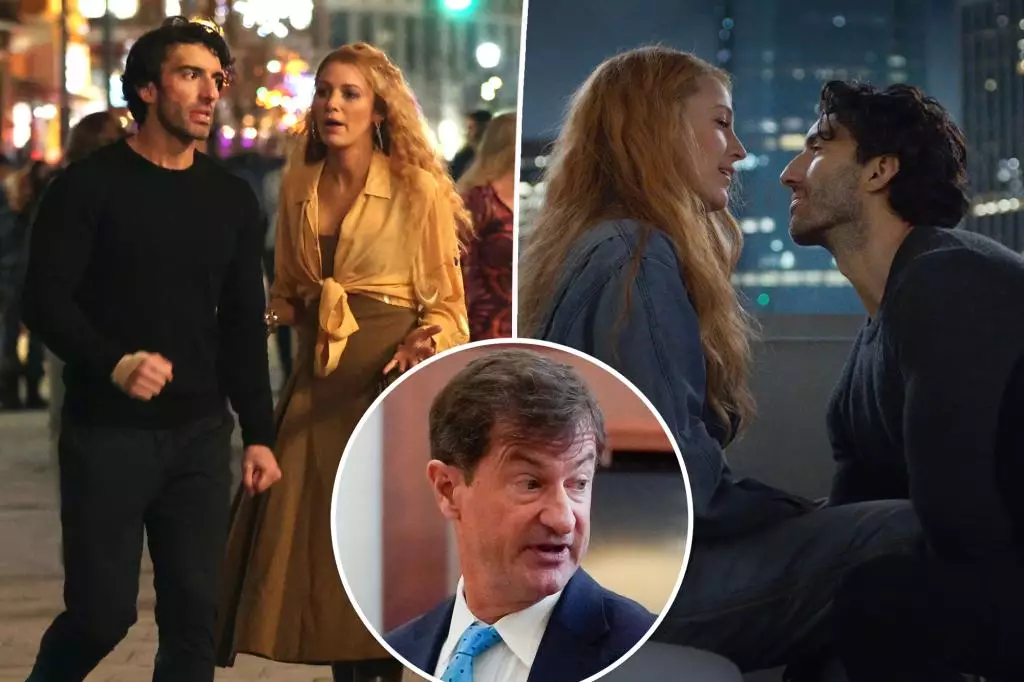The current legal tangle involving Justin Baldoni and Blake Lively highlights the intertwining of Hollywood drama and courtroom tactics. As the situation escalates, it becomes evident that the methods employed by legal representatives can significantly influence public perception and the trajectory of a case. Recently, attorney Benjamin Chew, who gained prominence for his role in Johnny Depp’s defamation trial against Amber Heard, evaluated Baldoni’s aggressive strategy in the ongoing legal battle. Baldoni’s decision to launch a dedicated website presenting his side of the story, complete with allegedly relevant timelines, raises questions about the acceptability of such public disclosures before a hearing. Chew described this approach as bold and novel, indicating how the landscape of legal battles is increasingly shaped by digital platforms and media engagement.
Chew’s comments underscore a crucial aspect of contemporary legal disputes: the importance of tangible evidence. In this instance, he emphasized that video and text message proof carries substantial weight compared to mere assertions made by legal counsel. This focus on evidence is especially relevant in cases involving public figures, where allegations can swirl, often based on incomplete narratives. The release of raw footage from the set of “It Ends With Us,” showcasing Baldoni and Lively’s on-screen chemistry, aimed to counter Lively’s claims of harassment. However, the opposing legal team asserted that the very footage intended to exonerate Baldoni could, paradoxically, harm his image. Therefore, how evidence is presented and interpreted becomes a critical factor in shaping the narrative surrounding the trial.
As the legal proceedings progress with a trial date set for March 2026, the implications of this case extend beyond the individuals involved. It is a striking example of how personal misconduct and public allegations can entrap celebrities in prolonged and highly publicized legal disputes. Additionally, the connections between this case and past events, such as Depp’s trial, highlight the cyclical nature of allegations in the entertainment industry. The involvement of crisis management firms, like those representing Depp, brings attention to the strategic maneuvers that celebrities and their teams must adopt to safeguard their reputations amidst allegations that could potentially ruin careers.
The unfolding situation between Baldoni and Lively serves as a poignant reminder of the distinct confluence of law and media in contemporary society. While the courtroom serves as the battleground for these allegations, public opinion shaped by strategic media presentations can significantly impact outcomes. As Chew pointed out, being able to substantiate claims with ‘receipts’ is crucial, indicating that transparency may sway not only the court but also public sentiment. In an era where the lines between personal and public life are increasingly blurred, the cavalcade of legal dramas in Hollywood invites scrutiny and often speculation, rendering it not just a legal matter, but a social phenomenon in itself.

